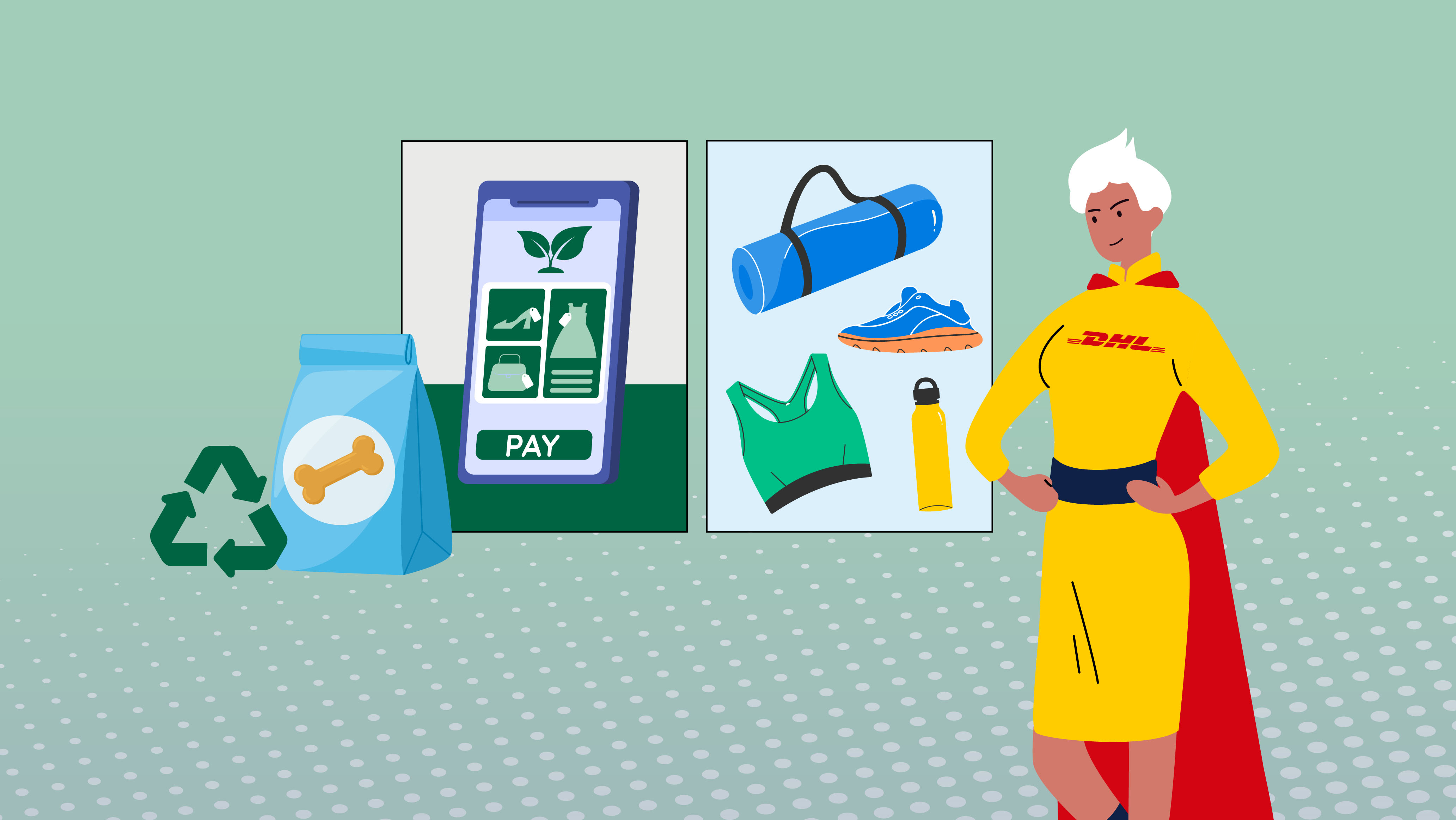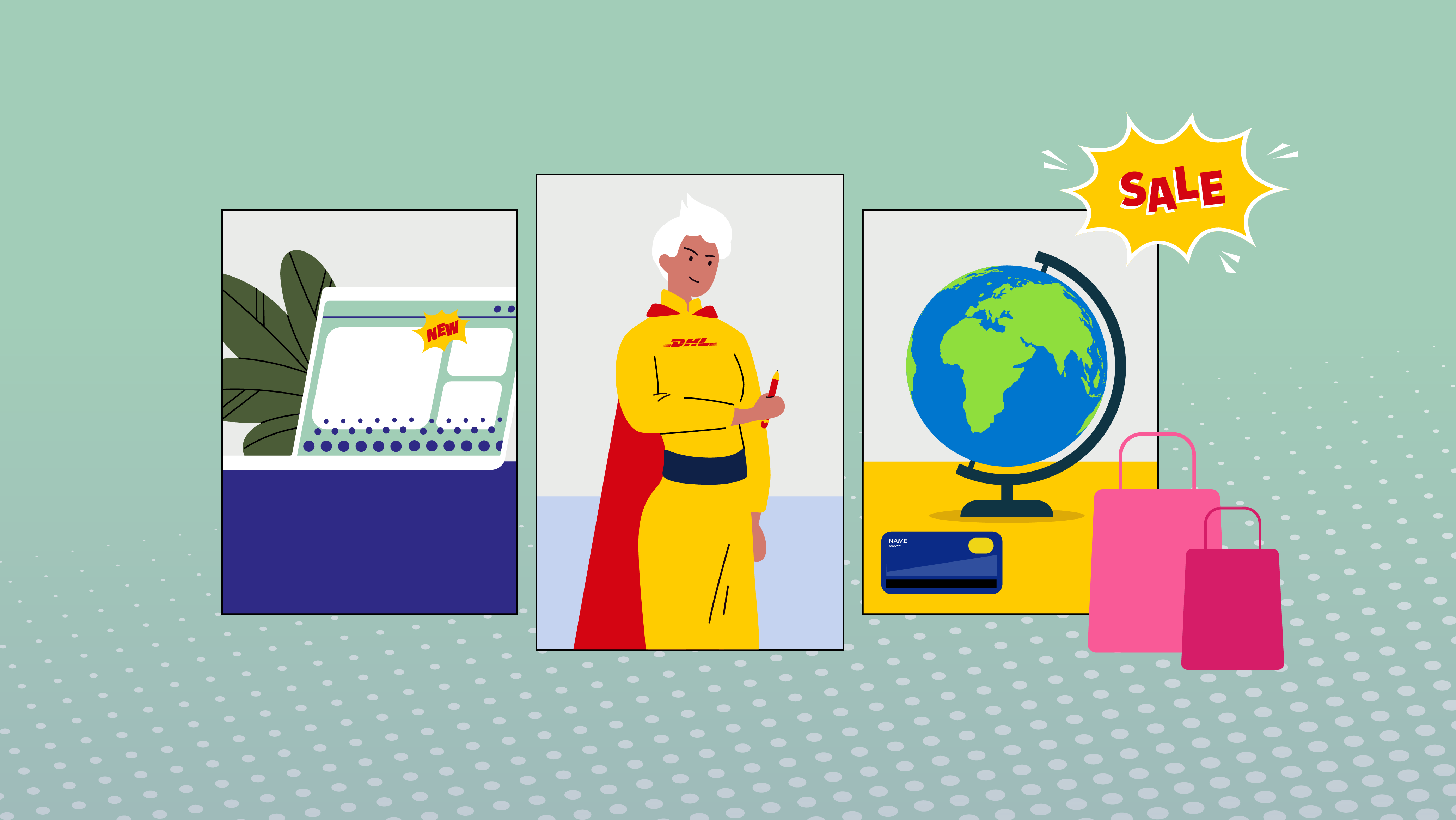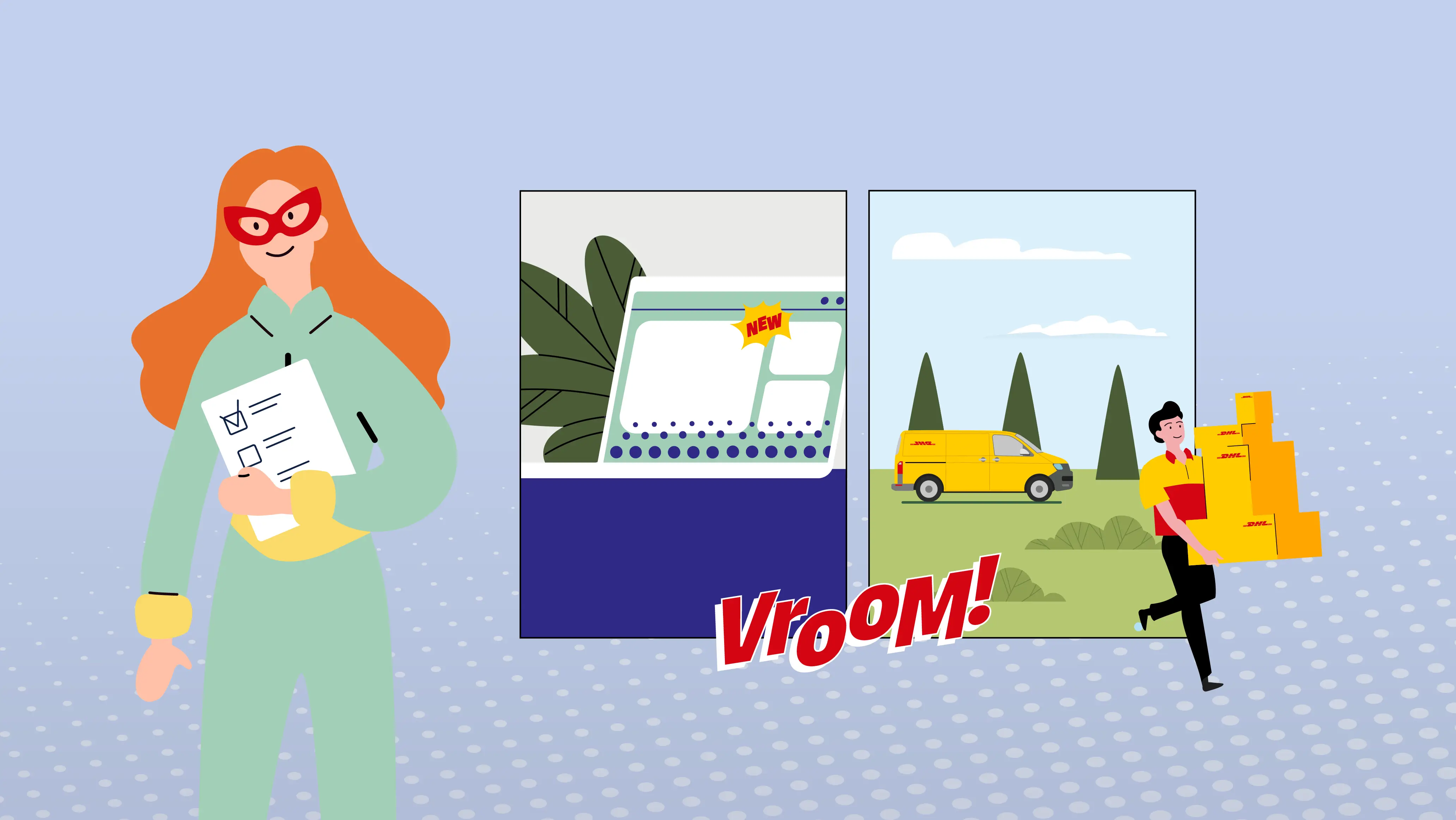This Peak Season, eco-friendly products will be in big demand. 79% of consumers are considering sustainability in their holiday shopping this year, whilst 76% are even willing to pay more for eco-friendly products1. Any e-commerce business with a “sustainable products” page on its website is going to be in a competitive position.
Read on to explore the latest consumer trends in sustainable products – from recycled activewear to ethical pet supplies – to give your business inspiration and help it attract a whole new audience of customers.
What are eco-friendly products?
Eco-friendly products are those designed to minimize their impact on the environment throughout their entire lifecycle, from manufacturing to disposal. They tend to be made from materials that are naturally-sourced, bio-degradable, recyclable, vegan and fair trade.

Handmade Christmas décor
Handmade items are often more sustainable, made from renewable materials like wood and designed to be of a higher quality, which contributes to their longer lifespan.
Take inspiration from online marketplace Etsy, which specializes in handmade and artisan products. This holiday season, Etsy’s customers can shop for plastic-free crackers, recycled glass baubles, wooden tree decorations and natural potpourri – to name just a few examples.
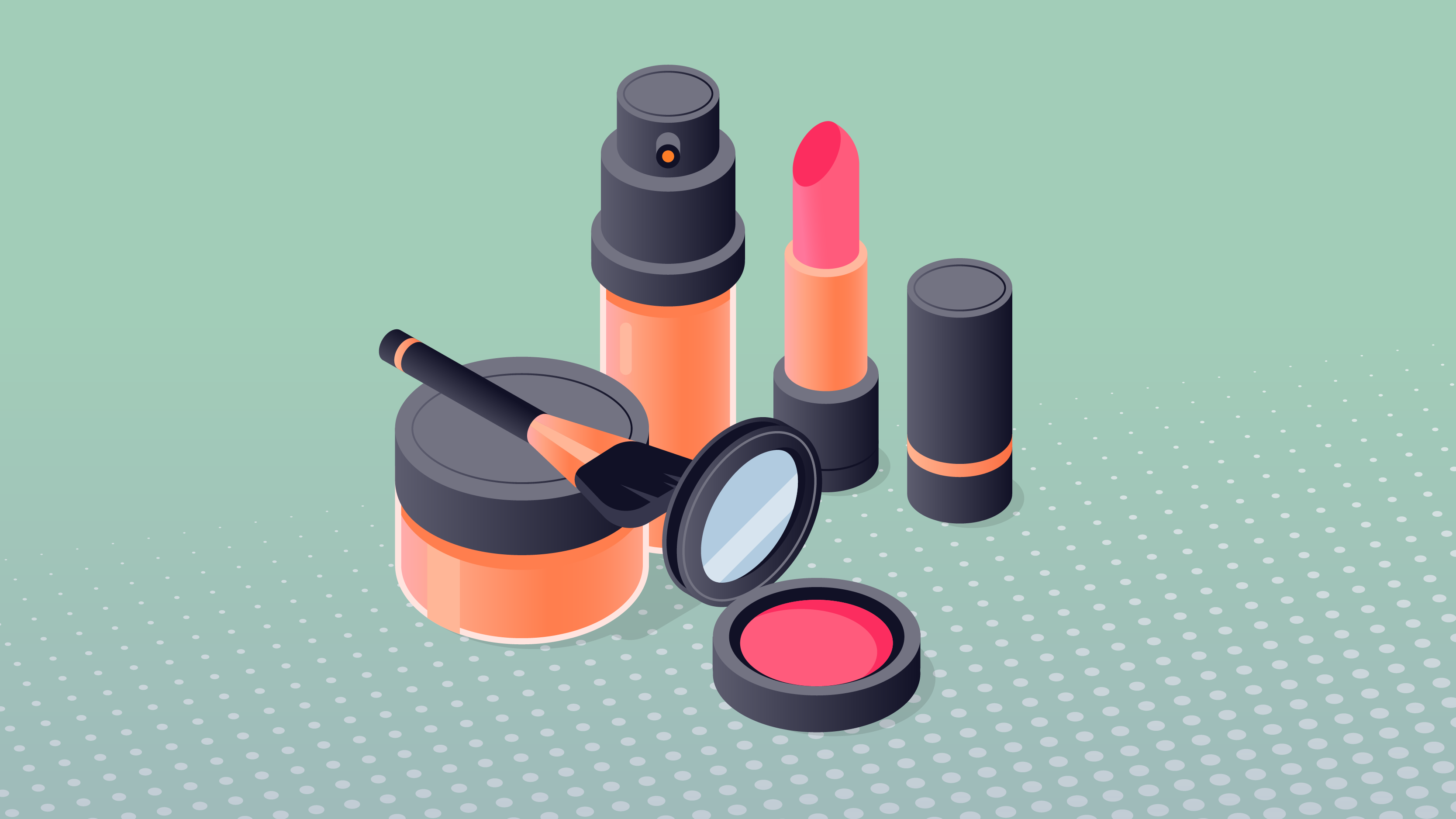
Cleaner beauty
The global clean beauty market is expected to reach US$22 billion this year2. Consumers are opting for skincare, beauty and haircare products made from organic, natural ingredients and free from “harmful” chemicals and parabens. Oh, and not forgetting the all-important cruelty-free (i.e. vegan) certification.

Gifts with purpose
Shoppers are looking for gifts that give back.3 They’re spending their money with brands that support charitable causes, donate a portion of sales to environmental initiatives, or commit to fair trade practices.
One inspiring example is outdoor apparel brand, Dark Peak, which promotes a "One Sold, One Given" model. For every jacket sold, they donate another to the homeless – an initiative that resonates with consumers who appreciate that their purchase helps someone in need.

Zero-waste products
Zero-waste products are those which favor reusable and recyclable materials over single-use, disposable ones. Examples include stainless-steel straws, bamboo cutlery, cloth grocery bags and reusable coffee cups.
Hydro Flask offers a range of durable water bottles that eliminate the need for single-use plastic. Their products are made from the best-quality stainless steel and are designed to last, supporting a sustainable, zero-waste lifestyle.
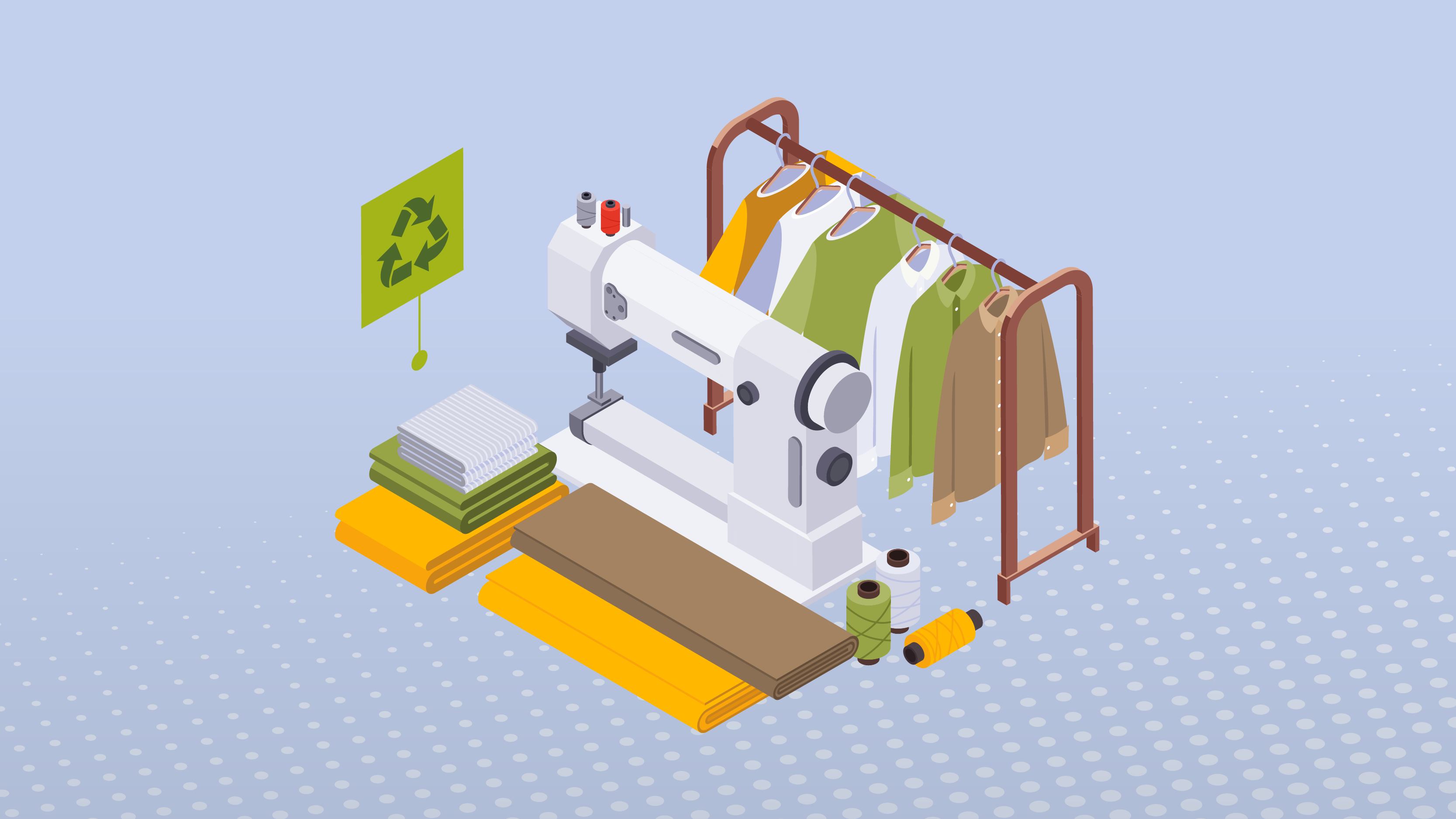
Slow fashion
Fashion has historically received a bad reputation for its manufacturing processes, but change is coming, with consumer demand driving a new era of “slow fashion”.
Earlier this year, second-hand clothing marketplace Vinted hosted a show at London Fashion Week demonstrating “the joy and innovation of pre-loved clothing.”4 Other sustainable fashion trends spotted on the catwalk included vegan materials, natural dyes and upcycled fabrics.

Ethical clothing
Ethical clothing brands are recognized for their commitment to sustainability by ensuring fair labor practices, minimizing their environmental impact, and supporting local communities. These brands often prioritize transparency, use eco-friendly materials, and engage in responsible production processes.
A great example is apparel brand PANGAIA, which pioneers innovative, sustainable materials for its products – including plant-based denim, and dyes made from vegetable waste.

Sustainable fitness products
These are gaining traction as more consumers seek to align their fitness routines with eco-friendly values. This category includes products made from recycled, biodegradable, or otherwise environmentally conscious materials.
Liforme, for example, is known for its eco-friendly yoga mats, which are made from natural rubber and come in biodegradable packaging, ensuring a minimal environmental footprint.
Recycled activewear is also transforming the fitness industry, turning post-consumer waste into high-performance clothing. Brands like Girlfriend Collective lead the way with activewear products made from recycled plastic bottles and fabric scraps.

Ethical pet supplies & products
Environmentally-conscious pet lovers are now spoilt for choice when treating their furry friends. West Paw, for example, offers a range of durable pet toys and bedding made from recycled plastic bottles, ensuring that their products are tough and sustainable. Additionally, The Green K9 provides all-natural, organic pet food and treats that are free from artificial additives and produced with sustainable practices.

Plant-based food
Demand for plant-based food is increasing as consumers seek healthier and eco-friendly dietary options. This movement towards plant-based eating supports environmental sustainability and animal welfare by reducing reliance on animal products.
Beyond Meat is a leading brand in this space, offering a range of plant-based meats that mimic the taste and texture of traditional animal products while being made from peas, rice, and other plant ingredients. Impossible Foods also contributes with its plant-based burgers and sausages, crafted from ingredients like soy and potato, designed to deliver a similar experience to meat while using fewer resources.

Solar-powered products
Solar-powered products are becoming increasingly popular among eco-conscious homeowners who want to minimize their energy consumption and reduce their carbon footprint. These innovations harness the power of the sun to provide sustainable alternatives to traditional energy sources.
Remember sustainable packaging
It’s not just the products themselves that shoppers are paying attention to; packaging is increasingly influencing consumer decisions. In fact, more than 80% of shoppers said they’d pay more for a product with sustainable packaging.5
Your business should prioritize recyclable, biodegradable and compostable materials, and take inspiration from brands like Lush. The cosmetics retailer uses minimal or completely plastic-free options for its personal care products. Its “naked” packaging approach, which eliminates containers altogether, shows the brand’s commitment to reducing waste.
Think beyond just products
Running a sustainable business goes beyond just the products you sell; your logistics processes will have a big impact on your overall carbon footprint. And that’s where DHL Express can help!
DHL’s GoGreen Plus is a dedicated solution to help businesses reduce the carbon emissions associated with their shipments through the use of Sustainable Aviation Fuel. This biofuel is produced from renewable sources such as vegetable oils and agricultural crops. It’s specifically designed to be used as a substitute for traditional jet fuel and can reduce greenhouse gas emissions by up to 80% compared to fossil fuels. GoGreen Plus can be selected for individual shipments, making it a viable option for SMEs and e-commerce businesses with smaller cargo loads.
Eco-Friendly Products: Frequently Asked Questions
While “eco-friendly” and “sustainable” are often used interchangeably, they generally refer to products that carry one or more of the following characteristics:
● Ethically manufactured: Produced under fair trade practices with fair wages and treatment of workers.
● Low environmental impact: Made with sustainable materials to reduce waste.
● Investment in carbon removal: Contributions to projects and initiatives aimed at reducing carbon emissions.
● Eco-friendly shipping: Use of low-impact materials and methods for packaging and delivery.
● Recycled or reclaimed materials: Incorporates materials that have been recycled or repurposed.
● Zero-waste options: Designed to be a waste-free alternative to conventional products.
● Certifications: B Corp certification or other recognized sustainability certifications.
● Natural ingredients: Uses natural, organic, or plant-based components.
● Charitable contributions: A portion of proceeds supports environmental or social causes.Item Text 1
Choosing which sustainable products to sell is dependent on your specific target audience as priorities can vary between groups. For example, nearly half of Gen Z consumers say they conduct extensive research on product ingredients before purchase.6
Use customer data (for example, sustainable products they’re searching for on your website that you don’t currently sell), invite feedback on social media, and pay close attention to trends within your sector to help you decide which products you could sell.
Partner with DHL Express to benefit from dedicated sustainable shipping solutions.
1 – EcoEnclose, 2024
2 – Statista, 2024
3 – Etsy, 2024
4 – Just Style, September 2024
6 – McKinsey, 2023

